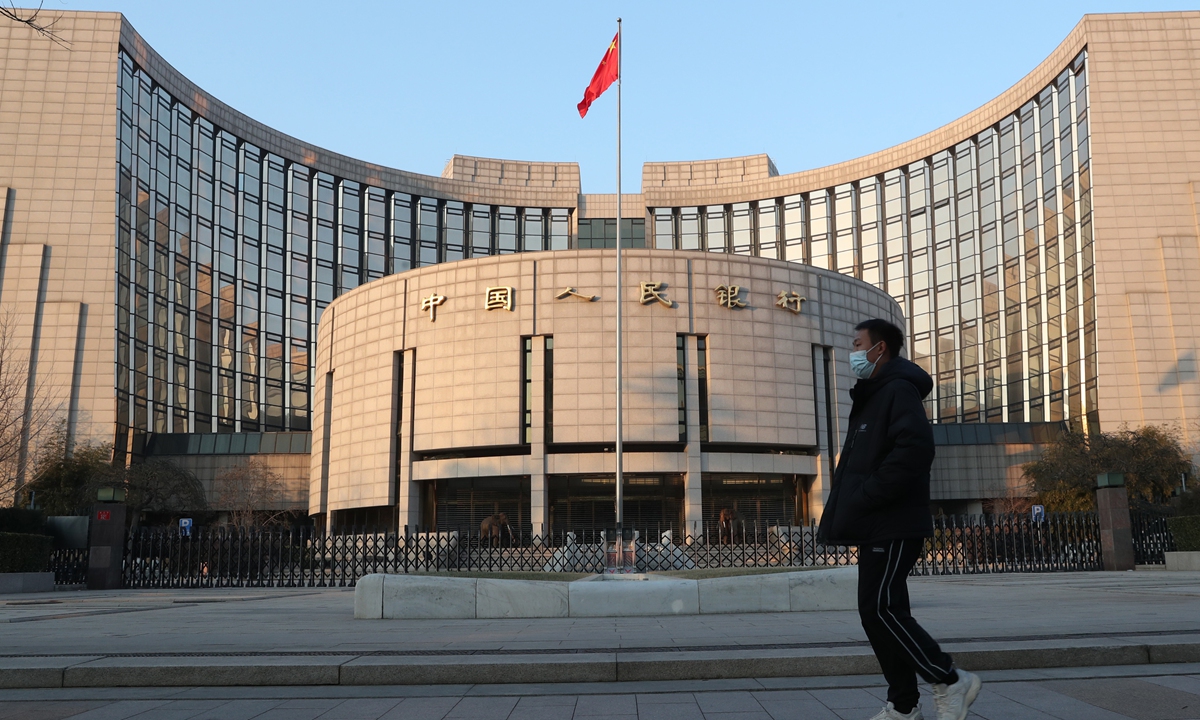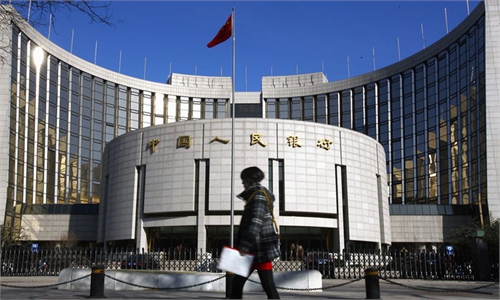
China's central bank Photo: CFP
A new monetary policy tool developed by the People's Bank of China (PBC), the central bank, will target the reduction of carbon dioxide emissions by 110 million tons per year with low-cost funding, said Jin Penghui, a member of the National Committee of the Chinese People's Political Consultative Conference (CPPCC) and governor of the PBC's Shanghai Branch on Thursday.
The PBC developed a special loan facility for the clean and efficient use of coal in November 2021 and granted 200 billion yuan ($31.66 billion) in financial support for the low-carbon transformation of coal-related industries.
The nation's largest banks will issue preferential loans to the green and efficient coal mining, coal processing and heating industries that meet certain requirements.
They will also provide relending support in proportion to the principal of loans.
Among the companies that are entitled to these favorable loans is a power generation enterprise in Shanghai that possesses a key self-developed technology. The technology can be used in the upgrading of coal and electric power enterprises, reducing their coal consumption per kilowatt hour (kwh) by 36 grams, Jin said.
With the support from the PBC, coal companies will be able to access low-cost funding for specialized technology upgrades. If the technology is promoted nationwide, it can save more than 40 million tons of coal and reduce 110 million tons of carbon dioxide emissions, Jin said.
Financial support is crucial to China's low-carbon industrial development, Lin Boqiang, director of the China Center for Energy Economics Research at Xiamen University, told the Global Times on Thursday.
"These projects have a long payback period, a relatively low rate of return, and many technologies that are in the initial stage, which requires a lot of investment," Lin said.
The PBC is committed to providing strong financial support for the nation's low-carbon transformation, which targets both the new-energy sector and the transformation of traditional sectors, said Jin.
"In the past, we established a green financial system targeting financial support to wind power, photovoltaic projects and other new-energy sectors through green bonds and green credit. Now, we are facilitating a new financial system that will provide strong financial support for the low-carbon transition of traditional fossil fuels, including the coal industry, he said.
Global Times



